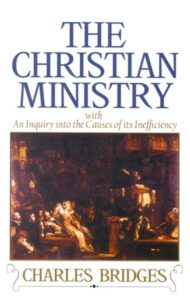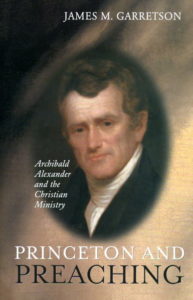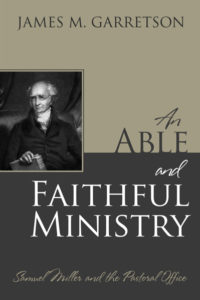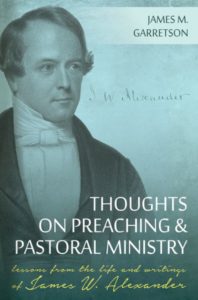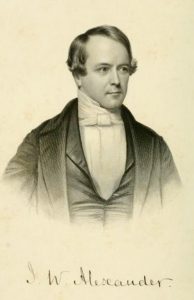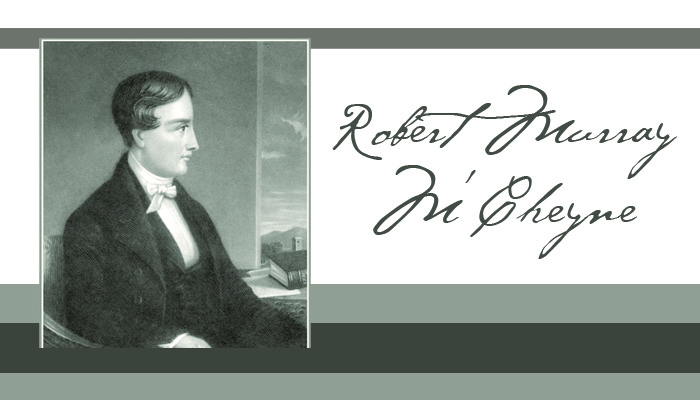
A few years ago, I listened to a panel discussion in which someone asked Joel Beeke, “If you could take one set of books with you to a deserted island, what would you choose?” He said, without hesitation, “The Christian’s Reasonable Service by Wilhelmus à Brakel.” And I asked myself, “What? By whom?”
Beeke’s subsequent explanation convinced me I should buy the four-volume set. I then worked through all four volumes in a year, reading seven pages a day. I found myself enjoying—dare I say it—The Christian’s Reasonable Service even more than Calvin’s Institutes. Calvin’s work is gloriously devotional; à Brakel improves on Calvin with his relentlessly warm application.
A Devotional Doctrine of Scripture
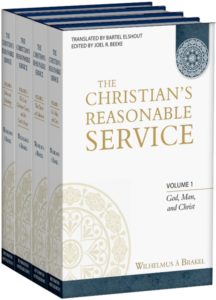 I remembered à Brakel’s skill in heart-searching application earlier this week as I prepared to teach a Sunday School class on the doctrine of Scripture. I glanced around the study and grabbed the usual Reformed suspects I dialogue with when preparing a lecture: Calvin, Dabney, Hodge, Bavinck, Vos, and Murray. I find these men leading me to drink at theology’s deep wells. But they don’t always invite you to jump in and swim. The Christian’s Reasonable Service, however, always summons you to a deep theological and doxological dive.
I remembered à Brakel’s skill in heart-searching application earlier this week as I prepared to teach a Sunday School class on the doctrine of Scripture. I glanced around the study and grabbed the usual Reformed suspects I dialogue with when preparing a lecture: Calvin, Dabney, Hodge, Bavinck, Vos, and Murray. I find these men leading me to drink at theology’s deep wells. But they don’t always invite you to jump in and swim. The Christian’s Reasonable Service, however, always summons you to a deep theological and doxological dive.
For example, in his chapter, “The Word of God,” à Brakel concludes by talking about six obligations we have to Scripture. For two and a half pages he cries out, “Oh, delight in God’s word! Read it ‘in prosperity, adversity, darkness, seasons of doubt, times of perplexity, and your entire walk.'” To ensure we do this well he rounds out his exhortation with several pages of “Guidelines for the Profitable Reading of Scripture.” In order to see how useful à Brakel is, here are his five encouragements for reflecting on Scripture.
“The reflection upon reading Scripture consists in”
- joyfully giving thanks that the Lord has permitted His Word to be recorded, that we may have it in our homes, that we can and were privileged to read it, and that it was applied to our heart;
- painstakingly striving to preserve this good spiritual frame which is obtained by reading God’s word;
- meditating while engaged in one’s occupation upon that which one has read, repeatedly seeking to focus his thought upon it;
- sharing with others what was read, whenever possible, and discussing it;
- especially striving to comply with what was read by bringing it into practice.
He then writes, “If the Holy Scriptures were used in such a fashion, what wondrous progress we would make in both knowledge and godliness! Children would soon become young men, and young men would soon become men in Jesus Christ.”
Doctrine that Lives
There’s something compelling to me in à Brakel. His a model of teaching worthy of emulation, I think. Each volume shows us what it means, as teachers, to be alive to God’s truth when teaching God’s truth. Let our doctrinal instruction pulse with Christ-exalting piety. Faithfully instructing others in the living word (Heb. 4:12) means teaching in a way that students, peers, and church members feel something of our flame of devotion. Wilhelmus à Brakel will help us all.
If you need any more encouragement to take up and read, consider Derek Thomas’ gushing praise:
No systematic theology compares to Wilhelmus à Brakel’s The Christian’s Reasonable Service for its explicit concern to weld the objective and subjective in theology. Emerging from the Dutch Further Reformation, à Brakel is without equal in exploring both the intricate details of the Reformed theological system whilst ensuring that at every turn theology is done in the interests of piety and the glory of God. In an era when the subjective has either been lost in a sea of postmodernity or viewed with suspicion for its apparent lack of academic integrity, only those who have never read this monumental treatise would dismiss it as guilty of either. An achievement to place alongside Calvin’s Institutes and the systematic theologies of Turretin, Hodge, and Berkhof.

